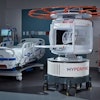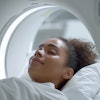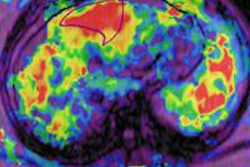Dear AuntMinnie Member,
Your government may be shut down, but your favorite radiology website is still open for business!
Advocates for PET imaging are probably wishing the government had shut down a few days earlier after getting disappointing news on the PET reimbursement front late last week. The U.S. Centers for Medicare and Medicaid Services (CMS) on Friday slipped in a sucker punch to proponents of PET imaging of beta amyloid, finalizing stingy reimbursement rules for dementia and neurodegenerative imaging that were first proposed in July.
Claiming there was little evidence to support the clinical efficacy of PET for neurodegenerative diseases, the agency declined to support broader Medicare coverage of the scans. There was one exception: CMS will pay for one PET scan to rule out Alzheimer's disease under the agency's coverage with evidence development (CED) framework.
PET proponents are understandably disappointed, as is Eli Lilly, the maker of the only beta-amyloid PET radiopharmaceutical on the market. Read more by clicking here.
And in a case of remarkably good timing, a U.S. research institute has provided some political cover for the CMS decision with a new literature review on PET for beta-amyloid imaging. Published yesterday, the review claims there is "extremely limited data" to demonstrate beta-amyloid PET's utility for diagnosing or treating dementia or neurodegenerative disease.
Get the details by clicking here, or visit our Molecular Imaging Digital Community at molecular.auntminnie.com, where you will find more reaction to the CMS decision.
Rads reach out
In other news, a new study indicates that while referring physicians are generally happy with the quality of radiology reports they receive, they would like to hear more often from radiologists about important findings.
An article in our Imaging Leaders Digital Community describes the study, in which referring physicians were asked to grade the quality of a set of sample reports. One key finding was that referring physicians feel they are bombarded with useless information, but they don't get the important findings that are essential to patient management.
Read more by clicking here, or visit the community at leaders.auntminnie.com.
Metal detectors for MRI suites
Finally, visit our MRI Digital Community for a new article on the use of a ferromagnetic detector to screen patients for metallic implants before they enter the MRI suite.
Such a detector could reduce implant-related accidents in the MRI suite, researchers concluded. Read more by clicking here, or visit the community at mri.auntminnie.com.


.fFmgij6Hin.png?auto=compress%2Cformat&fit=crop&h=100&q=70&w=100)





.fFmgij6Hin.png?auto=compress%2Cformat&fit=crop&h=167&q=70&w=250)











